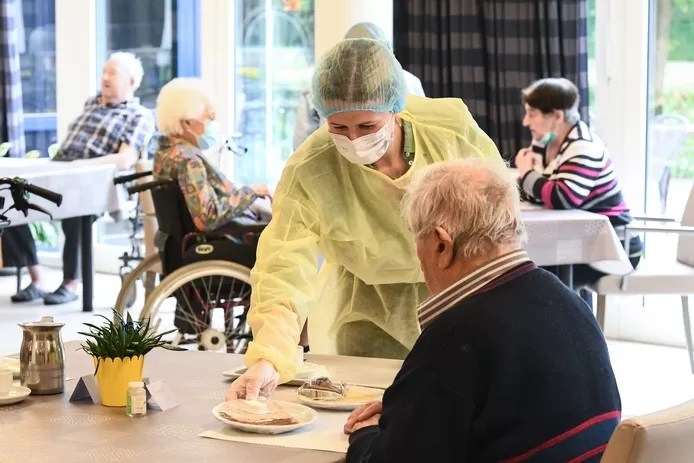An investigation is underway into how a care home in Nivelles in Walloon Brabant came to be infected with the Delta variant of the coronavirus, while 95% of the residents and 75% of staff were fully vaccinated.
According to the latest studies, the vaccines in use at present offer reliable protection against the Delta variant – the most virulent of the four variants so far uncovered.
Yet the home suffered an infection of 55 of its 119 residents. Most suffered relatively mild symptoms – although symptoms among elderly and infirm people can quickly change from mild to something much worse.
Nevertheless, 12 people died. According to figures from the health institute Sciensano, 34 people aged over 65 – not all of them in care homes – died in the week of 14 to 20 June in the entire country, down from 252 in the week of 4 to 11 April.
The investigation will now enquire into how the variant came to be present in the home, and why it had such a devastating effect.
At the same time, it will look into the odd situation whereby, while residents were being felled by the Delta variant, staff were becoming infected with the Alpha variant, formerly known as the British or Kent variant.
Did the presence of the Alpha variant somehow compromise the residents without producing symptoms, making them more vulnerable to the Delta variant?
The investigation is being carried out by the national reference centre for Covid-19, and the familiar face of Emmanuel André of KULeuven, once the daily bringer of Covid news.
“The investigation is still ongoing, as there are many elements that could play a role in this outbreak,” he told De Morgen.
Among the elements, action was taken quickly enough with the first infection, which variants are present exactly and what the amount of antibodies and the underlying disorders of the residents affected.
"But we also do air measurements to see if the ventilation is good and we study the lots of the vaccines used," he said.
The enquiry could take weeks, there are so many variables involved. But he was careful to point out that public disquiet at this point would be premature.
In that view, he was joined by Steven Van Gucht of Sciensano, once his colleague on the daily presentation.
“The outbreak in Nivelles is above all very exceptional. There are now fewer than five outbreaks per week at the 1,500 residential care centres in Belgium,” he told the paper.
And in those cases, the problem is a few infections, not dozens.
“I would call the situation across all residential care centres particularly encouraging,” he said. But a care home is also a world unto itself.
“You are dealing with a very vulnerable group of people, often with a weaker immune system. Occasionally it can and will go wrong. We have also seen this in the past with flu vaccines: even though almost everyone is vaccinated, people still die from it.”

